Best Way to Set Up Whole House Audio
Home Sound Installation: Install a Whole-House Audio System
Run wire and install speakers and distribution modules so that y'all can command music by remote command throughout the house.
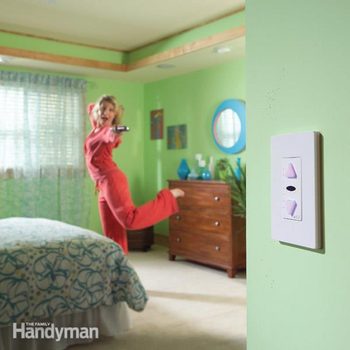
New high-tech components make information technology easier than always to install your own whole-firm sound system. Nosotros'll tell you what to buy and prove you lot how to run the wires and mount the speakers and controls. The rest is simple plug-in hookups.
You might as well like: TBD
- Time
- Complexity
- Cost
- Multiple Days
- Intermediate
- $501-g
Get familiar with the whole dwelling house speaker system
Bringing music into every room isn't the circuitous, high-cost project it was several years ago. At present, thanks to simplified systems, you lot can easily install speakers and remote command access throughout your firm for a modest cost. We'll tell y'all what to buy and testify you how to run the wires and mount the speakers and controls. The rest is simple plug-in hookups.
The whole-business firm sound system nosotros're showing in this commodity uses a technology chosen A-Double-decker. A-Double-decker applied science uses a standard Cat-5e cable (four-pair advice wire) to behave all the signals from a central source. The wires carry sound signals to each room, where they're amplified to speaker-level audio past the keypads. In addition to amplifying the audio signals, the keypads transmit infrared remote control signals dorsum to the audio equipment source. Annihilation yous can do with your source equipment's remote control, you can also do from any room that has a keypad.
With this system, the audio source called from whatever one room plays in all of the rooms. Systems that allow you to play dissimilar audio sources simultaneously are significantly more expensive and complicated to prepare, and we won't deal with those in this article.
Speaker System for Business firm Parts
A-Motorbus components are available from many manufacturers. The Channel Vision kit we purchased includes speakers and controls for iv rooms and cost nigh $ane,000. Yous'll also need Cat-5e cable, speaker cable and a few other parts that we've listed in the Additional Information section below. Keep in heed that you won't get "rock the room" distension like you would with powerful amps, merely it's plenty loud enough for average listening.
The hardest part of this project is running the wires without violent upwardly walls and ceilings. If yous live in a single-story house with open up floor joists over the basement or crawlspace or if you have easy admission to the attic, then fishing the wires will exist straightforward using the techniques we prove in Photos 3 and iv. In this situation, you'll come shut to finishing a four-room installation in a weekend. But two-story homes and homes without basements or attic access present unique wire-line-fishing challenges. Yous may have to spend a little more time line-fishing wires and patching walls and ceilings. Y'all'll need a drill and iii/iv-in. spade or auger scrap to bore through framing members. An electrician'south fish record ($12 to $15) is handy for pulling wires through the walls (Photo 4).
Connecting the equipment is straightforward and just requires a few tools. You'll need a scissors or side-cutting pliers to remove the cable sheathing and trim the wires. Buy a dial-downwardly tool ($4 to $half-dozen) to press the wires onto the punch-downwardly blocks (Photo 7).You lot'll too need a wire stripper ($12) to remove insulation from the speaker wires.
Cull the best locations for the dwelling sound system components
Locate the panel distribution hub on a wall in a room that'southward easy to accomplish with wires from every room (Figure A). Put it right next to the audio equipment if yous want. Nosotros chose a spot on the basement wall. Continue in heed that you'll need an electrical outlet nearby to power the transformer.
Keypads are most convenient if they're mounted near the calorie-free switch at the entry to the room where you're locating the speakers. But y'all'll also want to brand sure to place them in locations that allow easy wire fishing from the panel distribution module and to the speakers. Make certain they're in the line-of-sight from where you plan to use the remote control.
You tin can mountain speakers in the ceiling or walls. For the all-time sound, identify wall speakers nearly a foot from the ceiling and centered on your listening position. Locate ceiling speakers above and to the side of your listening position. For example, in the dining room, the platonic location for ceiling speakers would be centered above the table and about viii ft. apart
Cut the holes for speakers and keypads
Don't cut whatsoever holes for keypads or speakers until you've located framing members with a stud finder and probed the wall for obstacles. Mark framing members with blue record. Then button a stiff wire (a cutoff dress hanger works great) through the drywall to feel for obstacles like electrical cables, estrus ducts or woods blocking. Avoid exterior walls because they'll exist packed with insulation. For round ceiling speakers, curve the wire at about 4 in. Push it into the middle of your desired speaker location and spin information technology to see if annihilation's in the way. When you're confident that the infinite is clear, use the template included with the speakers to mark the hole, and cut information technology out with a keyhole saw.
Photos one and 5 bear witness the installation of a low-voltage remodeling box (bachelor at most home centers and hardware stores). Afterward tracing the box outline, cut the pigsty carefully and then the box fits tightly in the drywall. At that place isn't much room for error. Pull the wires first, then mount the boxes. It'll be easier to reach into the wall and take hold of the fish tape or string.
Fish Cat-5e to the keypads and speaker wires to the speakers
For this arrangement, you'll need to run one True cat- 5e cable from the distribution hub (Photograph x) to each keypad location. You'll also need to run one True cat-5e cable from the distribution hub to a Cat-5e modular jack located nigh your audio equipment. And finally you'll run speaker cables from the keypad location to the speakers in the aforementioned room. Use CL-2 speaker cable. It's rated to run within walls.
Photos 3 and 4 prove how to attain interior walls from the basement or attic. Use a coat hanger or other stiff wire as a reference indicate to locate your drilling spot. Snip off a x-in. length of coat hanger wire and tighten it in your drill chuck. So, from within the room you lot're fishing to, bulldoze information technology through the wall or ceiling next to where you desire to drill. Locate the coat hanger from the basement or attic and figure out how far to shift the hole in order to come inside the wall. Drill the hole and you're gear up to fish the cable. Later pulling the wires, seal the holes with cream or insulation.
To maximize the efficiency of the Cat-5e cablevision, it's important to take a few precautions when you lot're installing it. For the all-time performance, follow these guidelines:
- Make bends gradual with no less than a 12-in. radius.
- Pull gently; don't tug the cable.
- Support it with special cablevision staples fabricated for communication cables.
- Cross existing electrical cables at a correct bending. Never use the same holes or run the new cablevision side by side with electric cables unless there'south a 12-in. separation.
Connect the wires
Connecting Cat-5e wires is like shooting fish in a barrel. You just remove a department of the plastic sheathing, untwist the pairs of wires, and utilise a punch-down tool to push them onto special "punch-downwards" blocks. You lot accept to be conscientious not to nick the tiny wires when you're removing the sheathing, though. That'southward why we recommend the unzipping method shown in Photo 6. Photograph 7 shows how to dial the wires downwards onto the keypad connectors. The wiring order is indicated by small icons with color codes written on them. The slanted lines betoken striped wires. Line up each wire with its matching icon before punching it downwardly. Apply the same punch-down technique to make connections at the distribution hub (Photograph 10) and at the Cat-5e modular jack (Photo 11).
Strip the sheathing from the speaker wires using the technique shown in Photo six. And so strip and connect the wires (Photos viii and 9). Brand certain the bare stripped section fits completely into the holes with no bare copper showing. Connection details may vary slightly from ane manufacturer to another. To prevent heat loss through the ceiling, build a sealed enclosure over the speaker from drywall scraps or foam insulation, taped together with foil duct record. Then comprehend the enclosure with insulation. Wall-mounted speakers volition sound better if you plug the stud space above and below the speaker with fiberglass batts.
Connect the equipment with standard cables
Photo 12 shows how to connect the source module. You can connect any audio source to the module. If you're connecting a receiver, plug the RCA cable into the "tape out" outputs on the dorsum. With this setup, you'll be able to listen to any component (CD histrion, radio or turntable, for example) that'due south plugged into the receiver.
If a component has remote control capability, you can control it from the keypads. But start you accept to stick a flasher in front end of the components' infrared (IR) receiver. This isn't as complicated as information technology sounds. Photo thirteen shows how. You may have to experiment a bit with the placement of the flashers, since it'southward not ever like shooting fish in a barrel to spot the exact location of the IR receiver on the equipment.
The Channel Vision remote control is programmed to operate the keypads, but y'all have to teach information technology to ship IR signals to the other components. Instructions are included. Yous can likewise use your own learning remote or programmable remote, only you'll have to employ the Aqueduct Vision remote to teach it to command the keypads.
With a petty luck, you'll plow on the music and everything volition work perfectly. If it doesn't, yous most likely have a loose connexion or mixed-up wires. Double-check all your connections. Exist sure the wires are punched down completely and connected in the right gild. If you're still having trouble, contact your salesperson for assistance.
Effigy B: Wiring Diagram
This is what you lot'll demand to get tunes in all your rooms.
Note: You can download and print Figure B from the Additional Data section beneath.
Boosted Information
- Materials Listing
- Figure A: Audio systems components and location
- Figure B: Wiring Diagram
Required Tools for this Project
Accept the necessary tools for this DIY project lined up before you start—y'all'll salve time and frustration.
Punch-downwards tool, Fish Record, 3/4-in. auger bit
Required Materials for this Projection
Avoid last-minute shopping trips by having all your materials prepare ahead of fourth dimension. Here'southward a listing.
Source: https://www.familyhandyman.com/project/home-audio-installation-install-a-whole-house-audio-system/
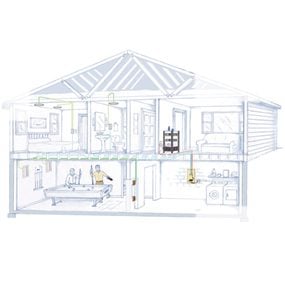
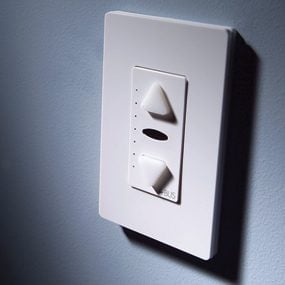
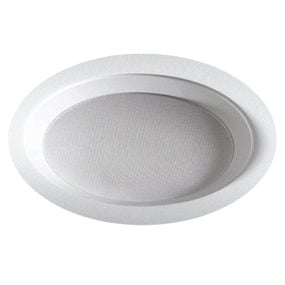
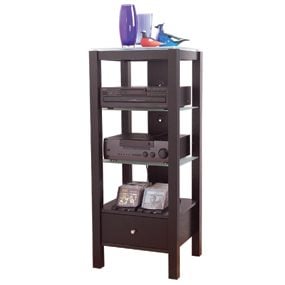
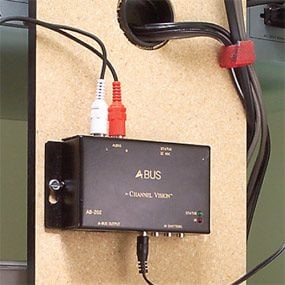
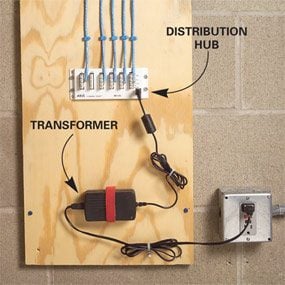
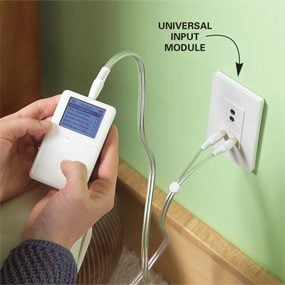
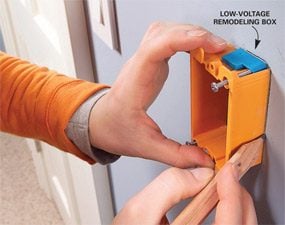
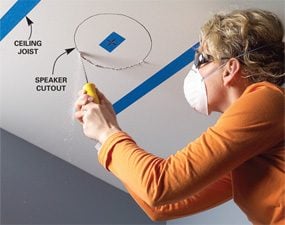
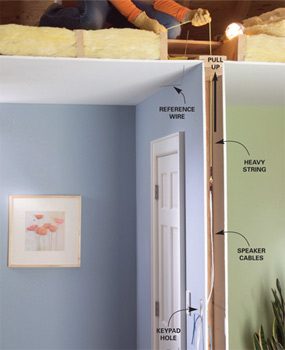
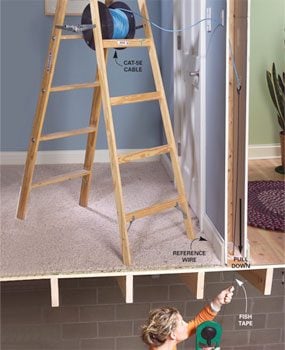
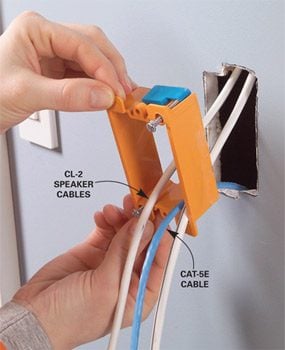
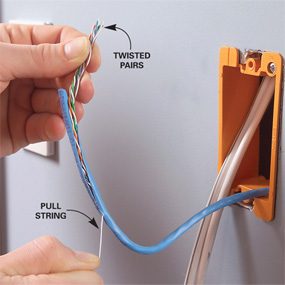
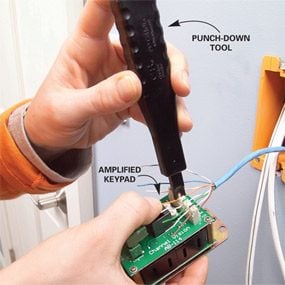
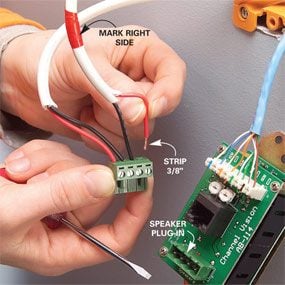
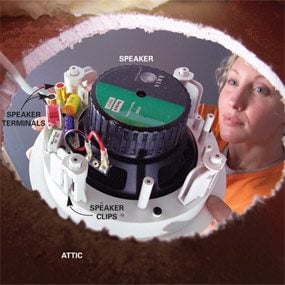

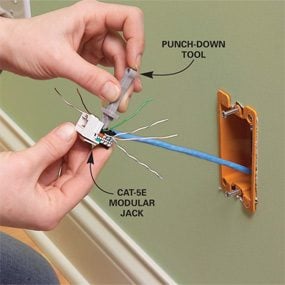
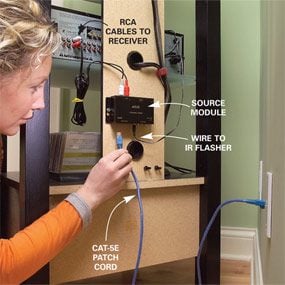
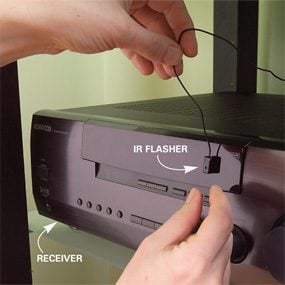
0 Response to "Best Way to Set Up Whole House Audio"
Post a Comment